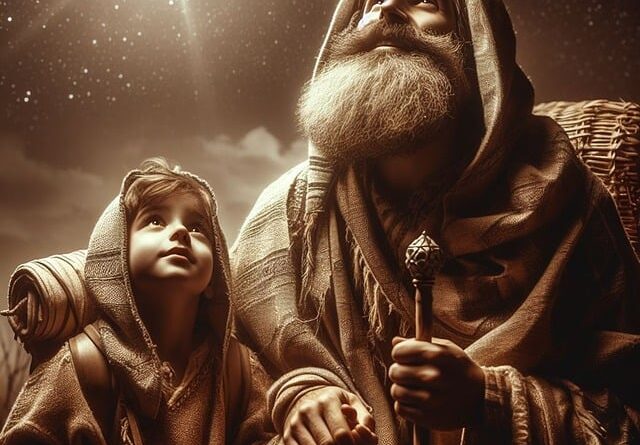Explore the captivating intersection of science and Genesis in the Creation vs. Evolution debate. Uncover contrasting theories and ideologies that challenge beliefs and expand understanding. Discover the complexities and questions surrounding this age-old topic.
Are you fascinated by the ongoing debate between creation and evolution? Look no further as we delve into the captivating topic, exploring the intersection of science and Genesis. This thought-provoking article explores the contrasting theories and ideologies that have divided experts and enthusiasts alike. From examining scientific evidence to analyzing religious teachings, we uncover the complexities and questions surrounding this age-old debate. Brace yourself for an engaging journey that will challenge your beliefs and expand your understanding of this intriguing topic.
Understanding Creationism
Creationism is a belief system that centers around the literal interpretation of the Book of Genesis in the Bible. According to creationists, the universe, Earth, and all living beings were created by a higher power, typically identified as God, in a relatively short period of time. The belief in creationism often rejects the scientific theory of evolution and attributes the diversity of life to divine intervention rather than natural processes.
Key tenets of creationism include the belief in a young Earth, typically dated to around 6,000 to 10,000 years old, and the concept of special creation, which asserts that each species was created independently rather than evolving from a common ancestor.
Different perspectives exist within the creationist community, ranging from Young Earth Creationism to Old Earth Creationism. Young Earth Creationists adhere to a literal reading of Genesis, believing that the Earth is young and that God created all species in their current form. On the other hand, Old Earth Creationists accept the scientific evidence for an ancient Earth while still maintaining the belief in a divine creator.
Understanding Evolution
The theory of evolution, proposed by Charles Darwin in the 19th century, is a scientific explanation for the diversity of life on Earth. It posits that all living organisms share a common ancestor and have evolved over millions of years through processes such as natural selection, genetic mutation, and adaptation to their environment.
Numerous lines of evidence support the theory of evolution. Fossil records reveal a progression of life forms from simpler to more complex organisms over time. Comparative anatomy and embryology demonstrate shared structural features among different species, indicating common ancestry. Genetic studies provide insight into the relationships between organisms based on their DNA sequences.
However, controversies surround the theory of evolution, particularly in religious and conservative circles. Some individuals take issue with the idea that humans are related to other animals or that life is the product of natural processes rather than a divine creator.
The Compatibility Debate
The compatibility between creationism and evolution has been a topic of ongoing debate. While some individuals believe that these two perspectives are irreconcilable, others have attempted to find common ground and bridge the gap between science and faith.
One challenge in reconciling creationism and evolution arises from the differing approaches to understanding truth. Creationism relies on religious texts as the ultimate authority, while evolution is grounded in empirical evidence and the scientific method. These contrasting epistemologies can lead to conflicting interpretations of the natural world.
Different approaches have been proposed to harmonize creationism and evolution. One such approach is known as “concordism,” which seeks to align the scientific findings of evolution with the biblical account of creation. Proponents argue that the six days mentioned in Genesis could be interpreted as representing long periods of time rather than literal 24-hour days.
Another viewpoint, known as “theistic evolution,” suggests that God’s creation can be understood through the lens of evolutionary processes. Believers in theistic evolution see evolution as the means by which God brought about the diversity of life, accepting both the scientific evidence for evolution and the spiritual belief in a divine creator.
Interpreting Genesis
The interpretation of Genesis varies among religious communities, leading to different perspectives on creation. Some view Genesis as a historical and scientific account of the origins of the universe, Earth, and all living beings. They believe that a literal understanding of the text best aligns with their religious beliefs and reject the findings of evolutionary science.
Others, however, see Genesis as a metaphorical account that conveys deeper truths about God’s relationship with creation. These individuals argue that the purpose of the biblical narrative is not to provide a scientific explanation but to convey spiritual and moral lessons.
Within religious communities, diverse interpretations exist. Some interpret the six days of creation as literal 24-hour days, while others consider them to represent longer periods of time or symbolic epochs. These varying interpretations reflect the richness and complexity of religious traditions and allow for dialogue and exploration of different perspectives.
The Role of Science
Science, as a systematic and evidence-based approach to understanding the natural world, plays a crucial role in our exploration of creation and evolution. The scientific method, which involves observation, hypothesis testing, and peer review, allows for the accumulation of knowledge and understanding.
However, it is important to note the limitations of science. While science can provide explanations for many phenomena, it does have boundaries. For example, science cannot address questions of faith or the existence of a higher power, as these fall outside the realm of empirical observation. Science is a powerful tool for understanding the natural world, but it does not possess all the answers or explanations for every aspect of existence.
The interaction between science and faith is a topic that sparks much discussion and debate. Many argue that science and faith are not mutually exclusive but can coexist harmoniously. They contend that science provides valuable insights into the workings of the natural world, while faith offers a framework for understanding deeper questions of purpose, ethics, and meaning.
Understanding the Universe
Cosmology, the scientific study of the origins and structure of the universe, has shed light on our understanding of its beginnings. The prevailing scientific theory, the Big Bang theory, suggests that the universe originated from a highly compact and dense state approximately 13.8 billion years ago. This theory is backed by extensive observational evidence, including the observed expansion of the universe and the cosmic microwave background radiation.
Theological perspectives on the origin of the universe vary among religious traditions. Some view the Big Bang theory as compatible with their faith, interpreting it as the scientific description of how God brought the universe into existence. Others may reject or reinterpret scientific explanations, preferring to rely solely on religious texts for their understanding of creation.
Exploring the similarities and differences between scientific and theological perspectives encourages an in-depth examination of our beliefs and fosters a more comprehensive understanding of the universe and our place within it.
Dating Methods
Dating methods play a critical role in both creationism and evolution. Radiometric dating techniques, such as carbon dating and potassium-argon dating, are commonly used to determine the age of rocks and fossils. These methods rely on measuring the decay of radioactive isotopes over time to estimate the age of geological materials.
Challenges can arise in dating ancient events due to limitations and uncertainties in the dating techniques. For example, radiometric dating may not be applicable to extremely old rocks or fossils, or it may yield imprecise results due to contamination or rare isotopic anomalies.
The role of dating methods in creationism and evolution is multifaceted. Creationists may question the accuracy and assumptions underlying radiometric dating, often seeking to reconcile scientific evidence with their belief in a young Earth. Evolutionary scientists rely on dating methods to establish chronologies and construct evolutionary timelines, corroborating the general consensus for an ancient Earth and the progressive nature of evolution.
The Fossil Record
Fossils serve as crucial evidence for the theory of evolution, documenting the existence and gradual changes of various life forms throughout Earth’s history. Fossil records provide a tangible link to past organisms, allowing scientists to reconstruct evolutionary lineages and understand the diversification and extinction of different species.
However, the fossil record also presents limitations and gaps. Fossils are rare and often only preserve a small fraction of all organisms that have lived. The fossilization process itself is selective, favoring hard-bodied organisms over soft-bodied ones. This incompleteness can lead to gaps in the fossil record, making it difficult to trace the precise evolutionary history of some species.
Creationist perspectives on fossil formation vary. Some creationists propose alternative explanations, such as a global flood, to account for the presence of fossils. They argue that the fossil record does not necessarily support the idea of gradual evolution, but rather reflects the rapid burial of organisms during catastrophic events.
Teaching Creationism and Evolution
The debate over the teaching of creationism and evolution in educational settings has been a contentious issue. Supporters of the inclusion of creationism in schools argue that it presents an alternative perspective that complements religious beliefs held by many students and their families. They advocate for academic freedom and the exploration of different viewpoints.
However, the legality of teaching creationism varies across countries. In some regions, the legal system prohibits the teaching of creationism in science classrooms due to its religious nature. Critics argue that presenting creationism alongside evolution as a scientific theory undermines the fundamental principles of science and science education.
Promoting critical thinking and scientific literacy is crucial when addressing the teaching of creationism and evolution. Encouraging students to critically evaluate evidence, understand the scientific method, and engage in respectful discourse fosters a deeper understanding of both perspectives. Constructive dialogue and open-mindedness can enable students to navigate this complex topic and form their own perspectives based on informed reasoning.
Debunking Misconceptions
Misconceptions and misrepresentations of both evolution and creationism are prevalent in public discourse. These misconceptions often arise from a lack of understanding or misinterpretation of scientific concepts and religious beliefs.
Addressing these misconceptions head-on is essential for fostering productive dialogue and understanding between individuals with differing views. Educating the public about the actual tenets of evolution and creationism can help dispel myths and misconceptions, enabling more informed discussions.
By fostering open-mindedness, empathy, and a commitment to honest and respectful dialogue, we can work towards building bridges and finding common ground in the intersection of science and Genesis. Embracing both scientific inquiry and a sense of wonder inherent in faith can lead to a richer understanding of the world around us.








